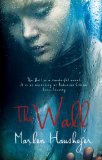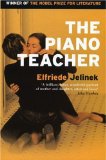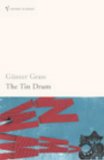 Translated from the German by Shaun Whiteside
Translated from the German by Shaun Whiteside
Five words from the blurb: woman, solitude, survival, dystopian, parable
The Wall was originally written in 1968 and is hailed as a feminist classic. I’m a big fan of dystopian fiction so I accepted a review copy, keen to see an Austrian take on this genre.
The Wall begins with a woman waking up to discover that she is surrounded by a giant transparent wall. Her relatives have disappeared and she can see many dead animals on the other side of the wall. She assumes she is the last human alive and sets about trying to survive. As time passes she plants crops and becomes a great hunter; becoming at ease with life by herself.
Unfortunately I had a few problems with the writing style. The first was that it all felt very distant. Everything was observed in such a cold way that I failed to develop any empathy with the woman. She is unnamed throughout and this didn’t help the bonding process.
She knew a great deal about many things, and nothing at all about many others; all in all her mind was governed by terrible disorder, a reflection of the society in which she lived, which was just as ignorant and put upon as herself. But I should like to grant her one thing: she always had a dim sense of discomfort, and knew that all this was far from enough.
The second was that the scientist in me questioned the entire back story. Why was there a wall and who put it there? Why did the women assume everyone in the world was dead? Why didn’t she try to escape? There was no evidence to back up any of her assumptions and she never questioned the reasons behind her captivity. If someone suddenly trapped me in a giant glass box I would be very upset and be asking a lot of questions. Yes, I’d still get on with things and survive in the same way she did, but I wouldn’t be so emotionless. There were many more elements of the story that didn’t quite add up, especially towards the end, but I’ll leave you to discover those yourself. The feminist aspects of the book also irritated me and I found her hatred of men difficult to understand.
I can see why this is considered a classic in Austria and the fact it annoyed me so much proves it has power over the reader. Recommended to feminists who enjoy a colder writing style.

.
The thoughts of other bloggers
….one of the most profound reading experiences I’ve ever had. Beauty is a Sleeping Cat
…a wonderful, profoundly moving novel…Crafty Green Poet
I’m sure, men don’t like this novel. Film, Book Tips and Buch Tipps



